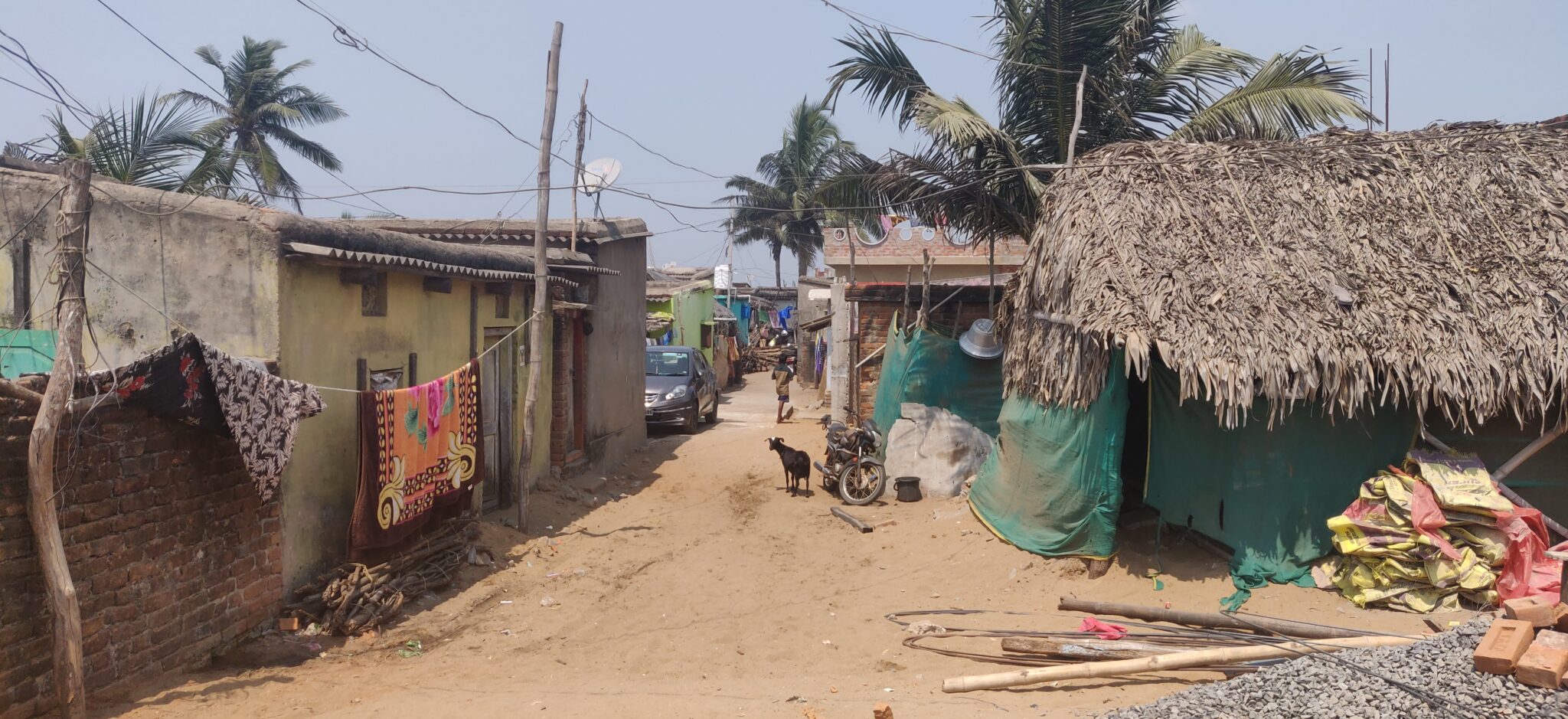Impact of Land Titling and Housing on Slum Dwellers

Houses in Puri, Odisha. Sep 2022.
Photo Credit: Sabareesh Ramachandran
Study Context
One of the Sustainable Development Goals is to provide affordable and safe housing to all. Currently, every sixth person in LMICs lives in an urban slum. Sabareesh evaluates the combined effect of two programs: one introduced by the state government of Odisha to give land titles to slum dwellers; the other a central Indian government policy to provide financial assistance for building a house. A house is an important asset to these households-it would allow them to start enterprises, protect them from floods during rains, and prevent their house from getting damaged during cyclones. Houses can also serve as a form of social protection to the poor-they can mortgage or rent the house. However, the fiscal outlay for the program being studied is large (~1% of budget). Hence it is important to quantify the impacts of the program.
Previous studies have looked at the impact of giving titles alone to slum dwellers and have found mixed impacts. Other studies have looked at relocating slum dwellers to new houses, on separate land but have not looked at building houses on the land they currently occupy.
Study Design
Sabareesh will be running a survey of a sample of these households to collect multiple outcome measures including income, consumption, employment, health outcomes, human capital investments, and domestic violence.
The government of Odisha can only give titles to those occupying government lands while some slum dwellers are on privately owned lands. There is variation even within slums on whether the land is owned by a government body or a private individual. Sabareesh uses this as an instrument for whether the households that received the title and financial assistance to construct the house do so. He has verified the exogeneity and relevance of this instrument using baseline data.
Results and Policy Lessons
Sabareesh finds that the housing construction grants provided by the government lead to higher quality houses being built. The program also has a progressive effect with lower-income households more likely to be beneficiaries of the grants. This latter result is partially driven by the fact that the program requires people to tear-down their current houses in order to receive the grant. This would lead to people with lower-quality houses being more likely to apply. These results suggest that programs can be made more progressive without limiting applications by simply increasing the opportunity cost of receiving the benefits for higher income households (tearing down their house).

